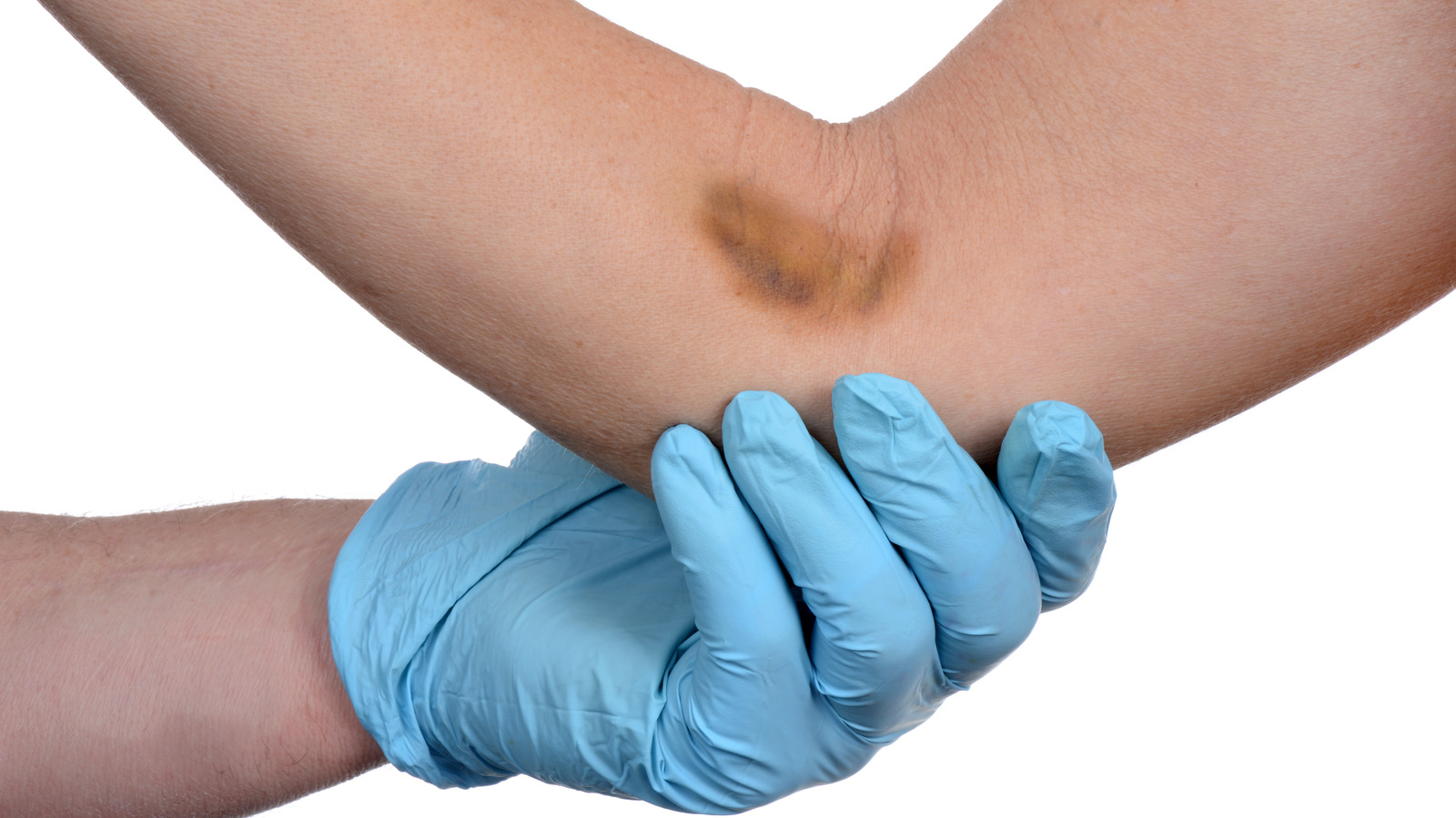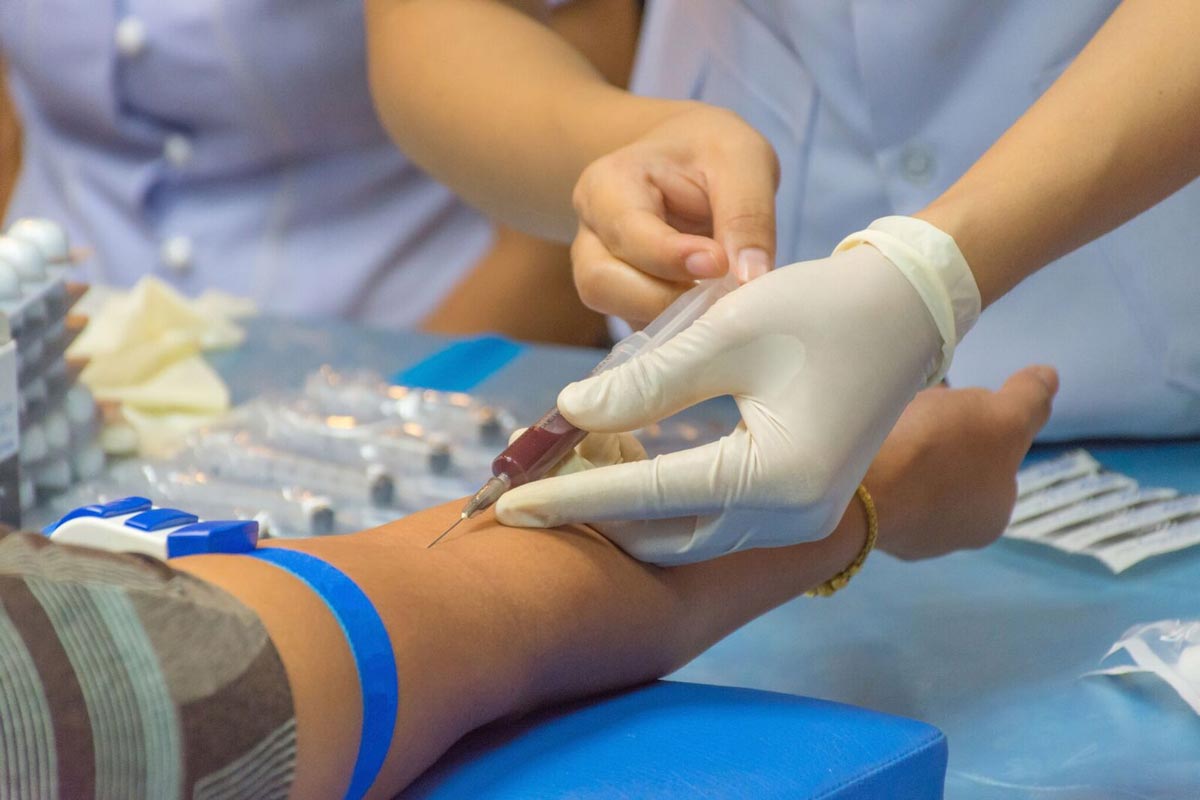Lightheaded After Blood Draw
Lightheaded After Blood Draw - Web did your patient faint during a blood draw? Webmd explains the process, risks, and side effects. If you have had this happen after previous blood draws, explain to the person taking blood that you are prone to feeling faint. This can make you feel lightheaded, sweaty, or nauseated. Web some people experience warning symptoms before fainting, such as weakness, lightheadedness, nausea, yawning, sweating, feeling warm, or rapid breathing. Although appropriate history and physical examination usually leads to a diagnosis, the. Lightheadedness is not the same as dizziness, which refers to feeling like the surroundings are spinning. Web many people feel faint, lightheaded, dizzy, or nauseous after a blood test, even more so after a blood donation. It’s also called a blood draw or venipuncture. These helpful tips will help keep the patient safe. And that's true of many other conditions including some autoimmune, malignant, allergic and. Web many people feel faint, lightheaded, dizzy, or nauseous after a blood test, even more so after a blood donation. Some causes of syncope are fairly benign, such as from dehydration, or during a frightening or uncomfortable event, such as a. Subtle hormonal imbalances cannot be detected. Web if the vagus nerve is overstimulated, it can make your blood pressure and heart rate drop suddenly. This is a physical response from your nervous system. Web some people experience warning symptoms before fainting, such as weakness, lightheadedness, nausea, yawning, sweating, feeling warm, or rapid breathing. Some causes of syncope are fairly benign, such as from dehydration, or during. Web did your patient faint during a blood draw? This can make you feel lightheaded, sweaty, or nauseated. Low iron in your blood reduces the amount of oxygen in your body. Web lightheadedness, dizziness or nausea. These helpful tips will help keep the patient safe. If you have had this happen after previous blood draws, explain to the person taking blood that you are prone to feeling faint. Web some additional causes of dizziness in older people can include: Tunnel vision — your field of vision narrows so that you see only what's in front of you; Low iron in your blood reduces the amount. Web many people feel faint, lightheaded, dizzy, or nauseous after a blood test, even more so after a blood donation. Any of these symptoms are known as a vasovagal response. Lightheadedness is not the same as dizziness, which refers to feeling like the surroundings are spinning. Web vasovagal syncope occurs when your body reacts so strongly to a trigger—like having. Web the most likely reason you felt sick to your stomach when you had your blood drawn is that your body was having a vasovagal reaction. Web you may feel faint and lightheaded and then suddenly lose consciousness or pass out. And that's true of many other conditions including some autoimmune, malignant, allergic and. Web lightheadedness is a feeling of. If you sense that a fainting spell is coming on, lie down and put your legs up (this allows blood to keep flowing to your brain), or sit down and put your head between your knees. This reaction is common and usually mild. It is commonly caused by dehydration, drug side effects, blood pressure drops, low blood sugar, heart disease,. Web dizziness can be classified into four main types: Vertigo, disequilibrium, presyncope, or lightheadedness. Web vasovagal syncope occurs when your body reacts so strongly to a trigger—like having blood drawn or being scared—that your heart rate and blood pressure plummet and you faint. Web lightheadedness, dizziness or nausea. It is commonly caused by dehydration, drug side effects, blood pressure drops,. This occurs due to a temporary lowering of blood pressure. Loss of consciousness and falling to the ground, usually for no more than 15 seconds. Subtle hormonal imbalances cannot be detected by traditional lab testing — even if they may not feel so subtle to you. If it's not gone tomorrow, maybe you should check with a doctor. It is. Low iron in your blood reduces the amount of oxygen in your body. It can be triggered by seeing the needle, seeing your own blood, or just feeling anxious about the whole thing. Once an attack starts, the following are likely to happen: Lightheadedness is not the same as dizziness, which refers to feeling like the surroundings are spinning. Web. If it's not gone tomorrow, maybe you should check with a doctor. Web phlebotomy is when someone uses a needle to take blood from your vein. However, people who donate blood may also experience side effects, such as minor. Web the most likely reason you felt sick to your stomach when you had your blood drawn is that your body was having a vasovagal reaction. Low iron in your blood reduces the amount of oxygen in your body. Fainting, or passing out — a temporary loss of consciousness also known as syncope — is caused by insufficient blood flow to the brain. If you pass out completely, it is called vasovagal syncope. Subtle hormonal imbalances cannot be detected by traditional lab testing — even if they may not feel so subtle to you. If you have had this happen after previous blood draws, explain to the person taking blood that you are prone to feeling faint. Web if the vagus nerve is overstimulated, it can make your blood pressure and heart rate drop suddenly. Web you may feel faint and lightheaded and then suddenly lose consciousness or pass out. And most of these subside with the next 24 hours of getting your blood drawn as your body recovers. A sudden feeling of tiredness. During a vasovagal syncope episode, bystanders may notice: It’s also called a blood draw or venipuncture. Recovery after a vasovagal episode generally begins.Symptoms for dizziness and lightheadedness, fast easy dinner ideas

What to do if Faint after Blood Draw Healths Digest

Is It Normal To Bruise After Getting Blood Drawn?

How To Draw Blood Painless & Effortless Drawbridge Health
:max_bytes(150000):strip_icc()/tips-for-making-a-blood-draw-easier-3156931-a1efe64eb50b4ca3b489144274854bf0.png)
7 conseils pour faciliter une prise de sang

Lightheadedness 10 Causes of Lightheadedness

9 Reasons Why You Feel Lightheaded—And When To Be Concerned Geelong

Blood Draw YouTube

Venipuncture, How to draw blood sample from vein with syringe

How to draw blood from a patient’s vein as painlessly as possible
Once You Feel Those Sensations, Do Your Best To Lie Down Promptly, Said Dr.
It Is Commonly Caused By Dehydration, Drug Side Effects, Blood Pressure Drops, Low Blood Sugar, Heart Disease, Or Stroke.
This Results In A Quick Drop Of Blood Flow To The Brain.
Once An Attack Starts, The Following Are Likely To Happen:
Related Post: